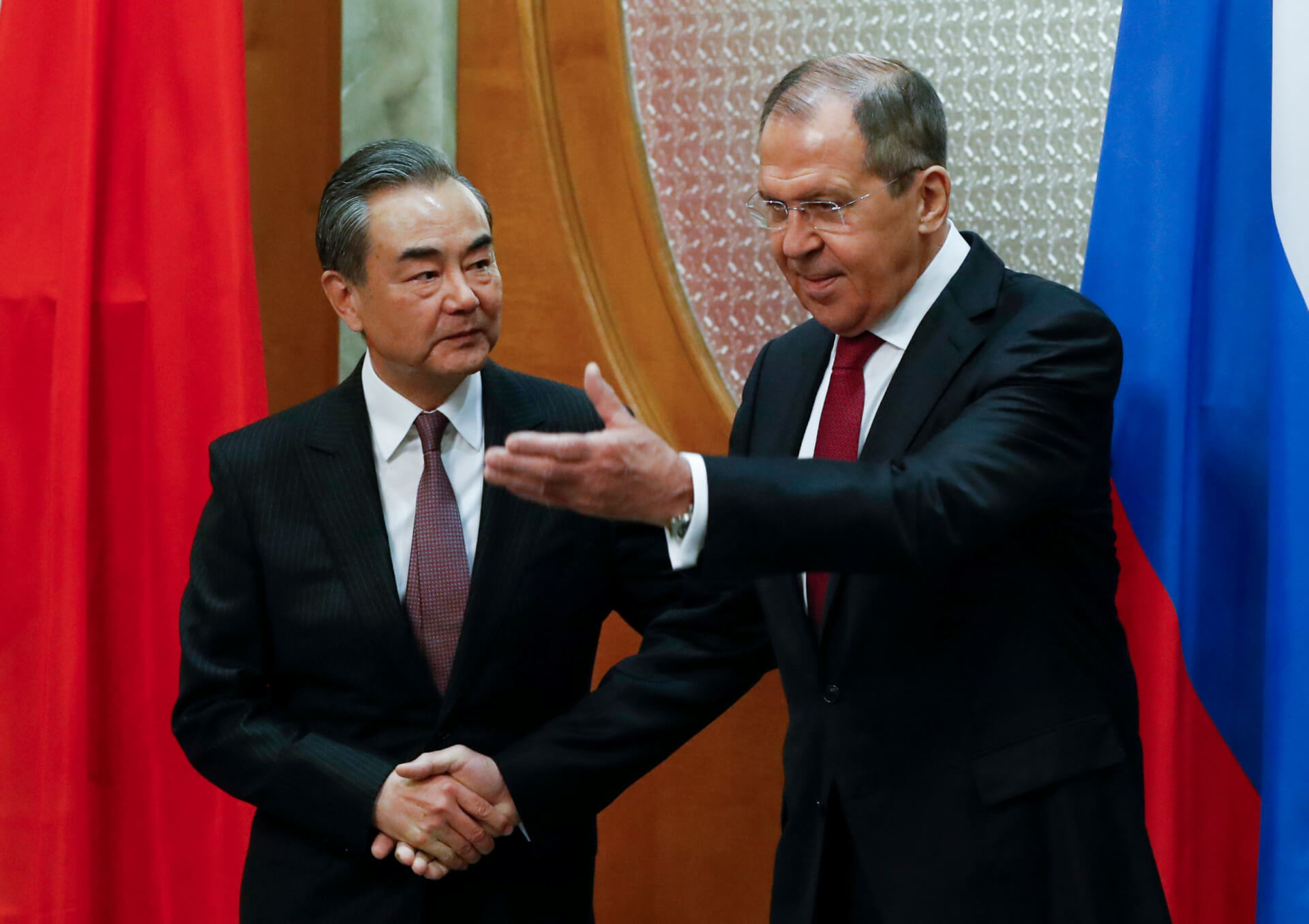On Monday, Chinese State Councilor and Foreign Minister (FM) Wang Yi had a phone conversation with Russian FM Sergey Lavrov. The leaders exchanged views on opposing the politicisation of tracing the origins of COVID-19, safeguarding the achievements of World War II, and strengthening coordination on the current situation in Afghanistan.
According to a press release by the Foreign Ministry of the People’s Republic of China, Wang noted that the situation in Afghanistan has undergone dramatic changes with the Taliban declaring victory and that China and Russia must strengthen strategic communication and collaboration under these new circumstances. Referring to the United States (US) military, which is in the process of pulling its troops out of Kabul, he said that “military intervention and power politics are unpopular and doomed to fail.”
Wang also suggested a three-step action plan that the two sides must follow to help improve the situation on the ground in Afghanistan.
- The allies should “protect each other’s legitimate interests in Afghanistan, maintain timely communication on the situation and urge the Afghan Taliban to take responsibilities and effectively safeguard the safety of Chinese and Russian nationals, institutions and enterprises.”
- Both sides should join forces in encouraging the Taliban “to pursue a moderate and prudent religious policy, work with all parties to form an open and inclusive political structure, pursue a peaceful and friendly foreign policy and achieve reconstruction and development of Afghanistan.”
- The new Afghan regime should “draw a clear distinction with all kinds of international terrorist forces, restrain and combat terrorist forces, including the Eastern Turkistan Islamic Movement, and prevent Afghanistan from becoming a gathering place for terrorist and extremist forces again.”
The Russian Minister said the comprehensive strategic partnership between Russia and China has “developed vigorously” and achieved significant results. He added that the current high-level of Russia-China relations has “surpassed the military and political alliance during the Cold War.” The Minister said that his government looks forward to holding a series of activities to celebrate the 20th anniversary of signing the China-Russia Treaty of Good-Neighborliness and Friendly Cooperation.
Moreover, Wang appreciated Russia sending a separate letter to the World Health Organization (WHO) opposing the politicisation of the COVID-19 origin tracing and questioning the WHO’s plan for the second phase of studies into the virus’ origins.
The Chinese Foreign Ministry also stated that the two ministers discussed the upcoming anniversary of the end of WWII. Lavrov said that Russia joins China in opposing attempts to tamper with WWII achievements. “Russia and China as main battlefields in the fight against fascism and militarism during WWII, have made a decisive contribution to the defeat of the aggressors. The two sides should continue to strengthen coordination, jointly organise commemorative events, and oppose the smearing of history by any forces,” he said.
In response, Wang said, “As the major victorious nations of WWII, China and Russia should join hands to defend the truth of history, oppose acts to whitewash or glorify militarism, check attempts to falsify history, and never tolerate overturning the verdict on the history of aggression.”
The two countries have been increasing cooperation in recent times. In May, Chinese President Xi Jinping and his Russian counterpart Vladimir Putin participated in the opening ceremony of the two countries’ nuclear energy cooperation project. The project marks the beginning of constructing new Russia-designed nuclear power units at the Tianwan Nuclear Power Plant and the Xudapu Nuclear Power Plant in China.

